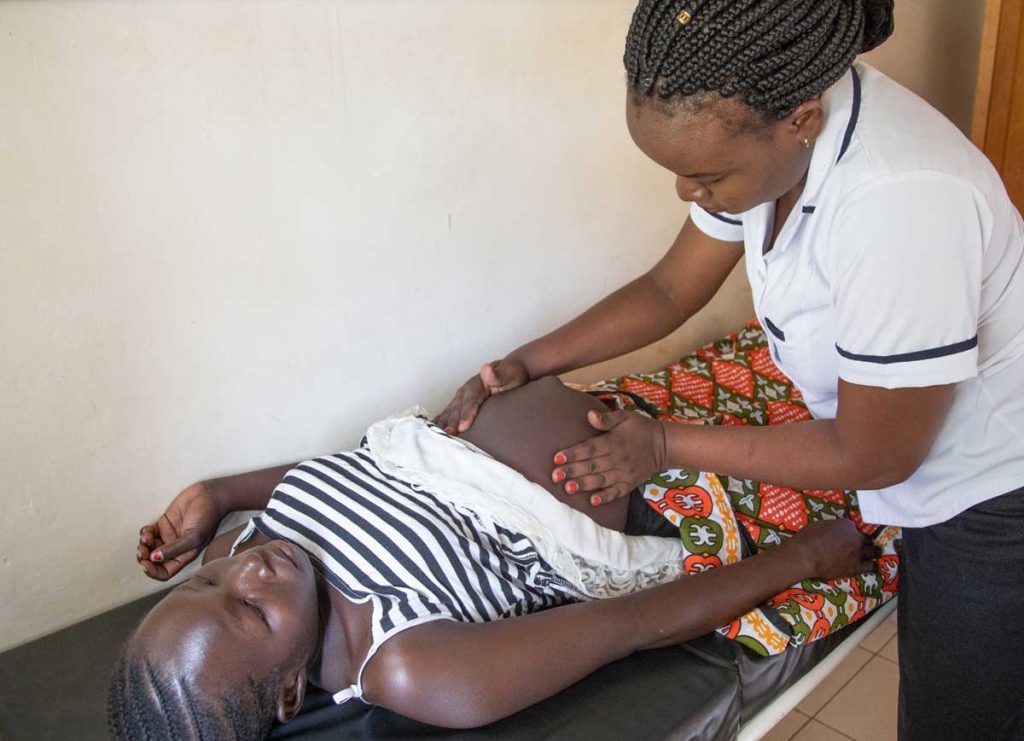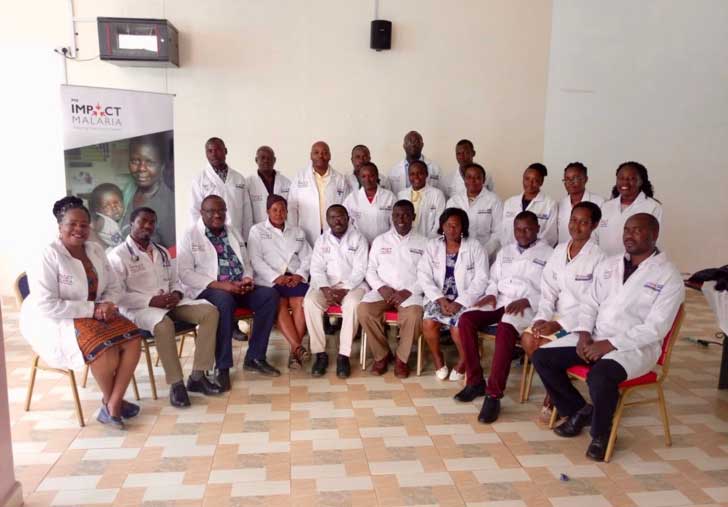
Kakamega, Kenya — Nineteen-year-old Jane* delivered a full-term baby in a health facility near her home without complications. When the new mother was discharged a day later, there was no hint of any problem. She was happy to go home and care for her newborn.
However, 6 hours later, Jane spiked a fever. She had convulsions and confusion, and was refusing to breastfeed.
Suspecting postbirth complications, Jane’s family rushed her back to the health facility, where a clinician mistakenly diagnosed postpartum pre-eclampsia—a rare condition characterized by high blood pressure and excess protein in the urine, which, like severe malaria, can cause convulsions. Jane lost consciousness and immediately was referred to Kakamega County Teaching and Referral Hospital for specialized treatment. She was admitted to the intensive care unit due to her altered consciousness and put on oxygen.
Clinicians there discovered that the true cause of her deteriorating condition was severe malaria based on a microscopic examination of a blood smear taken from her that revealed malaria parasites. The clinicians were part of a group participating in a refresher course on diagnosis and treatment of severe malaria, run by Kenya’s National Malaria Control Program (NMCP) and supported by Impact Malaria (IM), the five-year (2018 – 2023) flagship global service delivery project of the US President’s Malaria Initiative, dedicated to providing technical leadership along with program implementation support and technical assistance in health facility and community settings across Africa and Asia.
Dr. Erick Anyira, the consultant doctor and trainer of trainers with the NMCP/IM, suspected that Jane had developed severe malaria. He quickly ordered a malaria microscopy test. Sure enough, Jane tested positive for malaria and immediately received treatment for severe malaria using Kenya’s recommended regimen of IV artesunate.
Timely diagnosis and treatment of severe malaria are critical to fighting malaria, saving lives and ultimately achieving malaria elimination. IM is working in Kenya to strengthen the identification and treatment of severe malaria. During Jane’s hospitalization in late August, treatment with IV artesunate led to her full recovery. She regained consciousness on the second day and was discharged a few days later to rejoin her newborn baby.
Kenya is among 14 countries supported by Impact Malaria, which works with the NMCP to strengthen diagnosis, treatment and drug-based prevention for those most at risk of malaria, particularly children and pregnant women. IM is led by Population Services International in partnership with Jhpiego, Medical Care Development International and the Malaria Elimination Initiative at the University of California, San Francisco.

A lack of national data on severe malaria and malaria deaths has complicated Kenya’s fight against this mosquito-borne disease that, although preventable and curable, globally killed 435,000 people in 2017.
IM, through Jhpiego, has focused its resources on supporting the NMCP to close this gap by training health care workers on the treatment of severe malaria and enhancing availability of data on malaria in its focus counties. To date, the project has trained and mentored a total of 84 clinicians on identification and treatment of severe malaria.
The training in late August prompted the review and documentation of inpatient malaria data in the western Kenya counties of Kakamega, Bungoma, Busia and Vihiga. In a 3-month period following the training, 12 health facilities recorded more than 5,000 admissions and more than 600 deaths related to malaria. The findings: Malaria accounted for one-quarter of all hospital-related admissions in the four counties, and 12 of every 100 people admitted were likely to die of it.
Because accurate data lead to timely decisions and ultimately strengthen the quality of health services, IM is supporting the NMCP to take positive action in communities and in the context of outpatient visits and inpatient stays. The project is ensuring that community health volunteers are able to identify and refer severe cases of malaria to appropriate health centers. The IM team is training health care workers in outpatient units to classify severe malaria cases and working with inpatient departments to strengthen management of severe malaria upon diagnosis.
“Were it not for the IM team, Jane’s case would have been missed,” Dr. Anyira says. “If the training had not happened when it did, this would have been another funeral.”
Dr. Willis Akhwale, chief of party for Impact Malaria, contributed to this story.
*Not her real name



